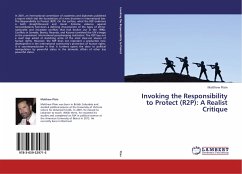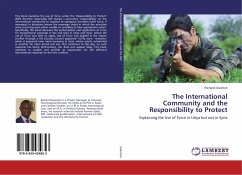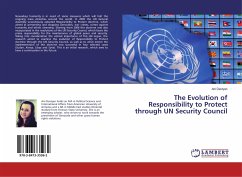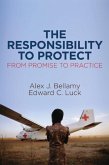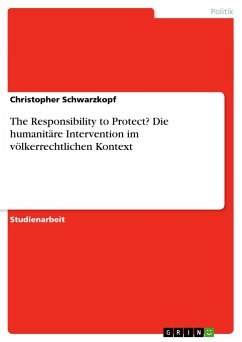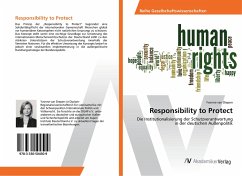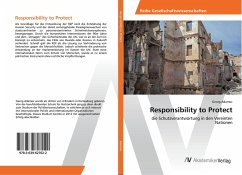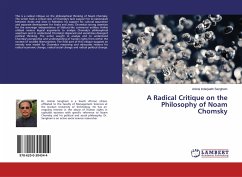In 2001, an international commission of academics and diplomats published a report which laid the foundations of a new doctrine in international law: The Responsibility to Protect (R2P). On the surface, what the R2P enshrines is both straightforward and moral. Extreme violence against noncombatants had been a defining characteristic of the types of ethno-nationalist and intrastate conflicts that had broken out in the 1990s. Conflicts in Somalia, Bosnia, Rwanda, and Kosovo tarnished the UN s image as the preeminent international peacekeeping institution. The R2P lays out a road map aimed at stanching some of the most clear-cut abuses of human rights. However, the R2P does not represent a productive new development in the international community s protection of human rights. It is counterproductive in that it furthers opens the door to political manipulation by powerful states in the domestic affairs of other less powerful states.
Bitte wählen Sie Ihr Anliegen aus.
Rechnungen
Retourenschein anfordern
Bestellstatus
Storno

